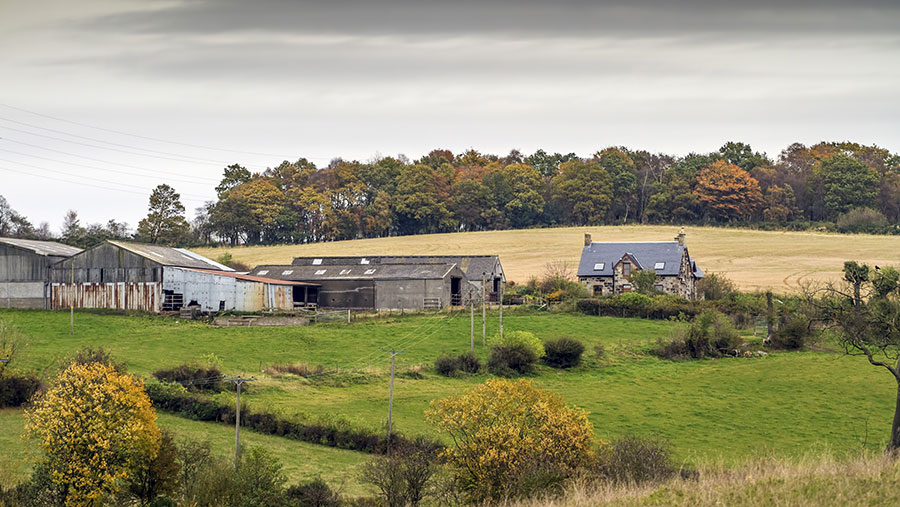Scottish landowners warn of higher, more frequent rent rises
 © Adobe Stock
© Adobe Stock Proposed legislation to cap rents on properties in Scotland could see tenants facing higher and more frequent increases, landowners have warned.
The Fair Rents Bill, which is progressing through the Scottish parliament, was established to protect tenants from unexpected rises by switching them to an annual, capped increment.
But in its response to a consultation on the bill, Scottish Land and Estates (SLE) said farm rent rises were likely to be made on a less frequent basis.
See also: Rule reminder: Key pesticide stewardship guidelines
An unintended consequence of the bill could see farm landlords switch to increase rents annually, in line with the bill’s remit, SLE said.
What does the bill propose?
The Fair Rents (Scotland) Bill is a member’s bill introduced by Pauline McNeill, Scottish Labour MSP for Glasgow in June 2020.
The bill proposed to:
- Impose caps on rent rises for private residential tenancies
- Allow private residential tenants to ask for a “fair open market rent”
- Require private landlords to enter information about the level of rents they charge in a public register.
The SLE’s response was a call for evidence which ended on 7 December.
It added that landlords might also impose the proposed maximum capped amount as an insurance against any unforeseen costs that could occur between scheduled rises.
The organisation’s policy adviser, Gavin Mowat, said: “At the moment the majority of landlords do not tend to increase rents mid-tenancy.”
By setting out a legal process, there is a real danger landlords will impose annual rises to the maximum level to offset the future cost of maintenance and repairs, Mr Mowat explained.
Less flexibility
He added that SLE was concerned many rural landlords would no longer offer lower rents to help vulnerable tenants because the flexibility to recoup costs in future would be removed by the proposals.
The chairman of Historic Houses Scotland, Andrew Hopetoun, echoed SLE’s views.
A cap could mean fewer opportunities to recover the costs of mandatory work to improve energy efficiency, carry out repairs and manage water supplies, Mr Hopetoun said.
These costs can be much higher for historic properties and this new legislation will make it almost impossible for landlords of historic homes to recoup the costs, he said.
“This could result in landlords removing their properties from the private rented sector and this could cause a shortage of rental properties in some rural areas,” Mr Hopetoun suggested.
